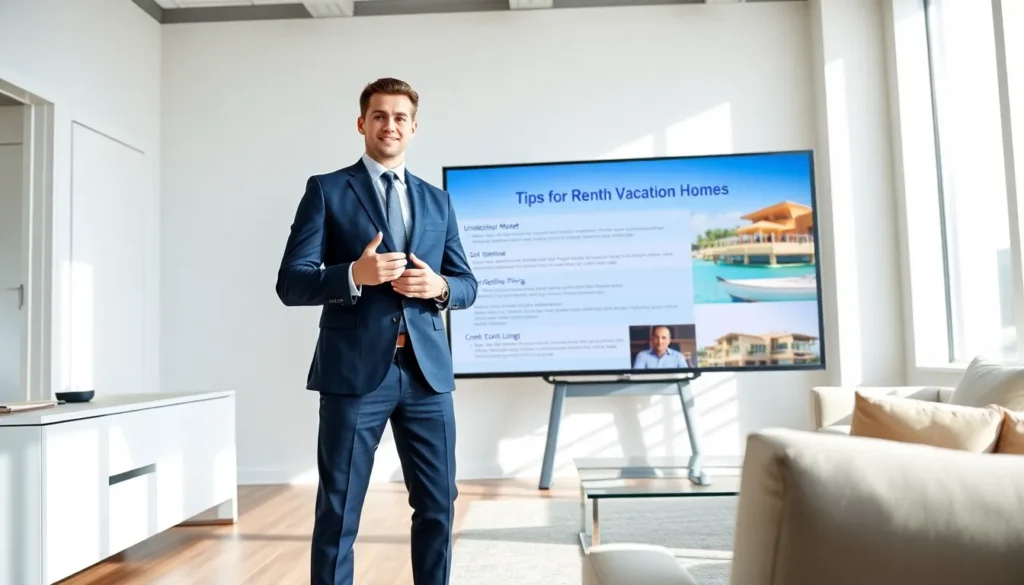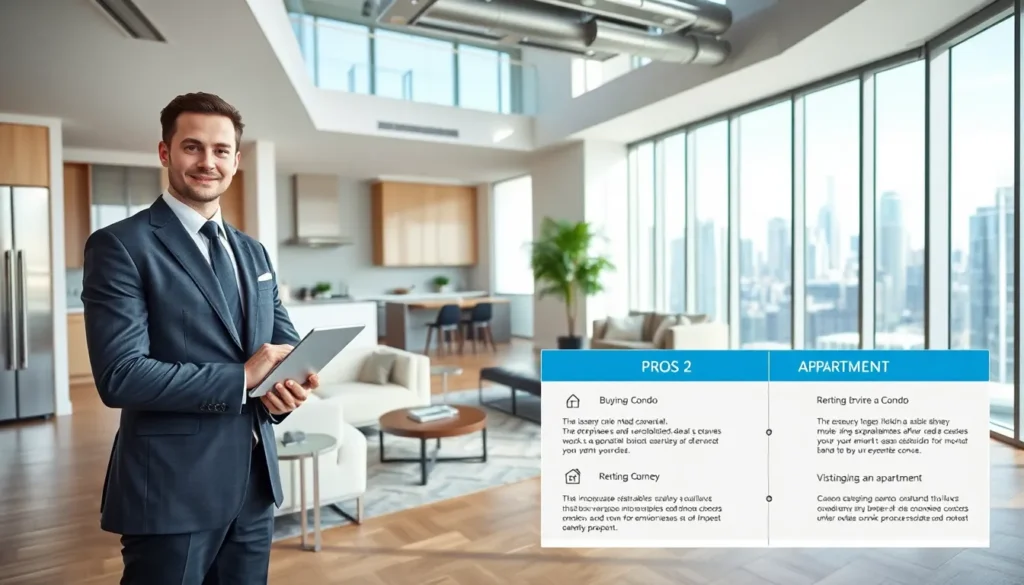Table of Contents
ToggleThinking about turning your cozy getaway into a money-making vacation rental? You’re not alone. With more travelers opting for unique stays over hotels, renting out your vacation home can be a lucrative venture. But before you let your home welcome guests, there are some essential tips you need to know. From understanding your market to managing bookings, this guide will provide all the insights you need to ensure you and your guests have a fantastic time, plus a little paycheck to boot. Let’s immerse with a chuckle and a plan.
Understanding Your Market

Understanding your market is crucial to successful vacation renting. First, identifying your target audience is essential. Are you catering to families looking for a home base, young couples seeking a romantic getaway, or adventure-seekers? Knowing who your guests will be allows you to tailor your home and marketing to their needs.
Next, consider researching local trends. What attractions are nearby? Do seasonal activities draw visitors? Is there a local event that could boost bookings? Jump into online travel forums, local tourism sites, and social media to gather insights. This local knowledge helps you position your rental effectively from the outset.
Setting Competitive Pricing
Setting the right price is an art. Start with evaluating seasonal demand. If your property is near a ski resort, prices will peak in the winter months. Likewise, coastal getaways can command higher rates in summer. Understanding these patterns lets you set competitive prices that attract bookings while ensuring profitability.
Also, conduct a comparative market analysis. Look at similar rentals in your area: what amenities do they offer, how do their prices compare, and what are their occupancy rates? This analysis helps you find a sweet spot for pricing, ensuring you remain competitive.
Preparing Your Vacation Home
Preparation is key to a successful rental experience. Start with essential amenities and features. Guests today expect more than just a place to sleep. Wi-Fi, kitchen essentials, and laundry facilities can be game-changers. Consider also stockpiling local guides and leisure equipment, like beach chairs or bikes, to enhance the guest experience.
Next, employ effective staging and photography tips. A well-staged home not only looks inviting but feels like a retreat. Natural light, clean spaces, and inviting decor can make all the difference in photos. Hiring a professional photographer can also be a worthwhile investment, as stunning images capture potential guests’ attention.
Creating Compelling Listings
Now that your home is ready, it’s time to share it with the world. Focus on writing descriptions that sell. Highlight unique features, like a hot tub or nearby hiking trails. Use lively language that sparks interest and paints a picture of the experience your home offers. Avoid generic phrases, create a narrative that makes travelers dream of their stay.
Don’t underestimate the power of utilizing high-quality images. Showcase all angles of your property, including outdoor spaces. Potential guests want to visualize themselves enjoying your home. Clear, bright, and well-composed photos can drastically increase booking inquiries.
Promoting Your Rental Property
Effective promotion is the linchpin of your vacation rental strategy. Start by leveraging online platforms. Listing your property on popular sites like Airbnb, Vrbo, or Booking.com can significantly expand your reach. Ensure your listings are optimized, current property descriptions, updated calendars, and competitive pricing are must-haves to attract viewings.
Also, consider adopting social media marketing strategies. Share engaging content related to your property and local attractions across platforms like Instagram and Facebook. User-generated content from past guests can boost credibility. Encourage guests to tag you in their posts or share their experiences. This kind of organic marketing offers significant returns.
Managing Bookings and Guest Relations
Once the inquiries start rolling in, streamlining the booking process is paramount. Carry out a user-friendly booking system to avoid double bookings while ensuring guest communication is seamless. Automation tools can help you manage checks, send confirmations, and keep everything organized.
Communication with guests is equally important. Adopting communication best practices with guests sets a positive tone right from the start. Promptly respond to inquiries, provide clear instructions for check-in, and be available for any questions during their stay. This builds trust and can lead to excellent reviews and repeat bookings.




